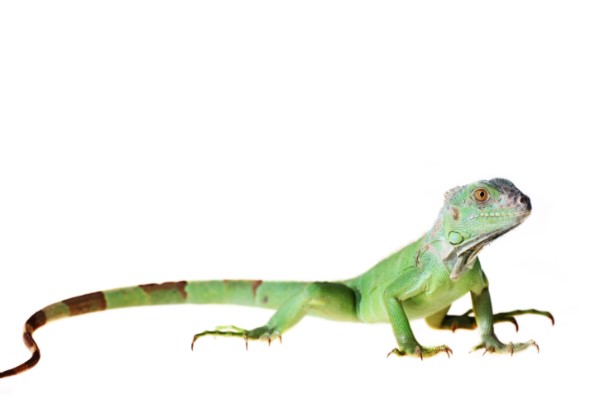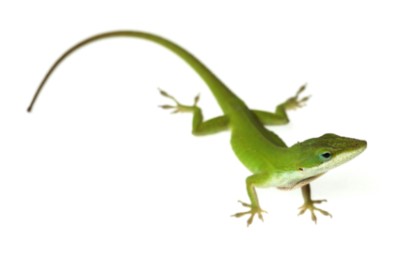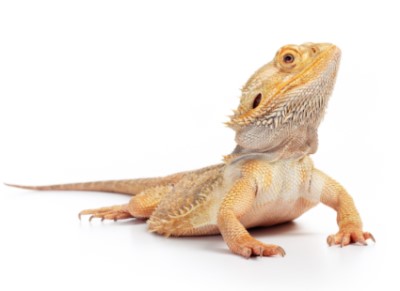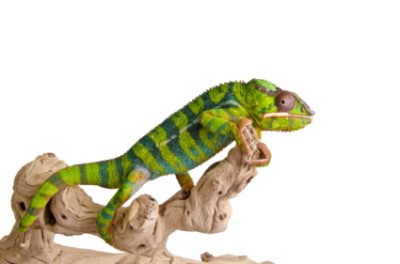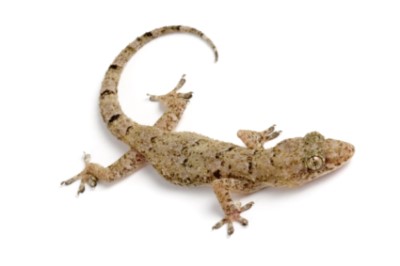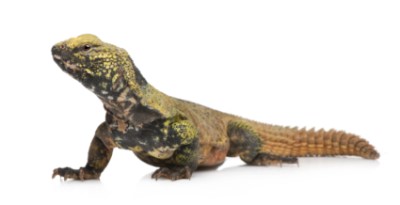Common Reasons for Surrender
People buy an iguana when they are cute, adorable babies, but after one or two years the lizard is suffering from lack of UV lighting, so she can become aggressive because she’s not had the light or heating sources and her only way to communicate that is to whip her tail, scratch, or bite. So, people surrender the sick and often deformed iguana. Iguanas will bond with humans and rescuers report that there are iguanas that were given away or sold and the iguana went in to the corner, refused to eat, and eventually died, heartbroken.
Pros
Iguanas bond to humans and can respond affirmatively when being carried, touched, or rubbed. They don’t usually follow humans around, but they do watch their humans.
Cons
Iguanas need human attention. They are fussy and don’t like the site or smell of their own mess. Once they’ve done their business, they try to get as far away from it as they can. This lizard prefers to be a free roamer around the house and he grows to be six feet long, as long as your couch. You must be prepared for their size and realize that this lizard is going to be with you for 15 to 20 years.
Diet
Most iguanas are herbivorous but a few will eat meat. The popular green iguana is a strict vegetarian and needs vitamins and minerals in her food to survive in a family terrarium. The iguana likes cooked sweet potatoes and oatmeal as well as dark leafy greens such as collard greens, mustard greens, and dandelion greens—not lettuce. They love fruit, especially fresh figs and watermelon. This lizard does not drink a lot, but will sip water from a spoon or allow you to spritz water into her mouth with a spray bottle. Feed the iguana twice daily.
Exercise
The iguana will want to climb up on the highest point in your home and watch the world from that highpoint. They walk through the house and can even be put on a leash and go outside with you. Other iguanas live in a home that has a fenced in yard. Those iguanas can actually be let outside (in the summertime only) and will scratch at the door when they want to come back in. Your iguana may climb up on a bush or a high point out in the yard to watch over the neighborhood and then climb down when bored. (You can put a blanket on the bush so it’s more comfortable for her).
Possible Health Issues
The number one health issue is a lack of calcium because people do not realize the iguana needs a proper diet with calcium and the UV light. Without these, her bones will get soft, deformed, and spinal inflammation sets in. Without help, the iguana will eventually die.
Housing
Iguanas are naturally free roamers and see a small cage as a punishment. Your iguana is a tree dweller and will love an elevated place near the window to look outside, the higher the better. You may want to set up branches to climb inside the house or convert a small room or a large closet into an Iguana room. Be sure to fix UV lighting in your iguana’s home to avoid bone deformity and sickness.
Grooming
Be diligent to cut the iguana’s nails or they’ll grow long and sharp and inadvertently cut you when you pick him up. Cut just the tips with an ordinary nail clipper or nail scissors that are made for pets. Iguanas need high humidity, especially when shedding. Most lizards shed skin pieces, so the little pieces can be found all over the room.
Training
Iguanas have been trained to use a certain spot to go to the bathroom in the house, so you simply put down paper towels and train them to go. Some will climb into your lap. They are very affectionate reptiles and, like cats, either they like you or they don’t. It takes work to gain their trust, but when you do they will show you love and affection.
Entertainment
Iguanas love to be the “neighborhood watch.” If they are inside, put them by the window to watch the birds, squirrels, and neighbors. If you leave the house, turn on the television so she can watch TV and see something moving. A bored iguana can cause problems.
We want to thank Reptile and Amphibian Rescue, Los Angeles, California, for help with this profile.
